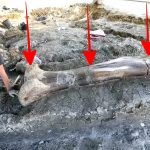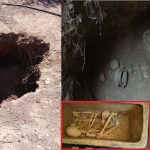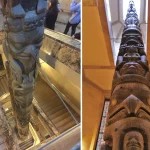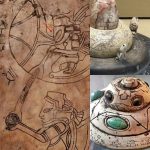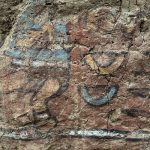Archaeologists have discovered a mass grave in an ancient Greek cemetery that had 80 skeletons connected by iron chains.
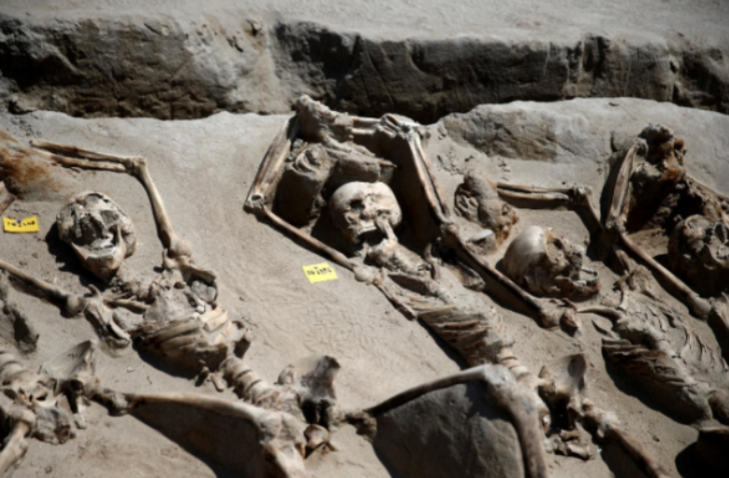
Archaeologists have uncovered mysterious remains at the Falyron Delta necropolis in Athens. At least 80 skeletons were found buried in a mass grave in an ancient Greek cemetery, with their wrists clamped by iron shackles. Experts believe they were victims of a mass execution, but the identities of these individuals, how they came to be there, and why they were buried with a measure of respect, remain a mystery.
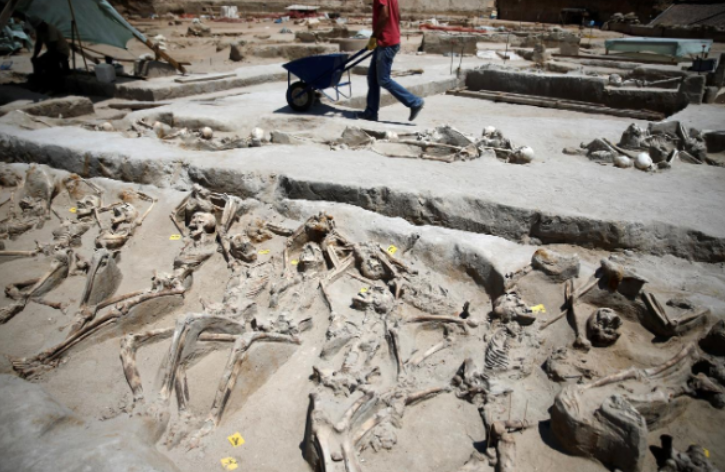
Skeletal remains, with iron shackles on their wrists, are laid in a row at the ancient Falyron Delta cemetery in Athens. Credit: Reuters
During the construction of a national opera house and library between downtown Athens and the port of Piraeus, a worker discovered shackled skeletal remains at the ancient Falyron Delta cemetery. These remains were found earlier this year in a part of the cemetery that has been dubbed the Falyron Delta necropolis. Despite restrictions on entrance, archaeologists carefully led a tour of the site to Reuters. The tour showcased the skeletons, some of which were arranged in a long and neat row in the sandy ground. Others were piled on top of each other, with their arms and legs twisted and jaws hanging open.
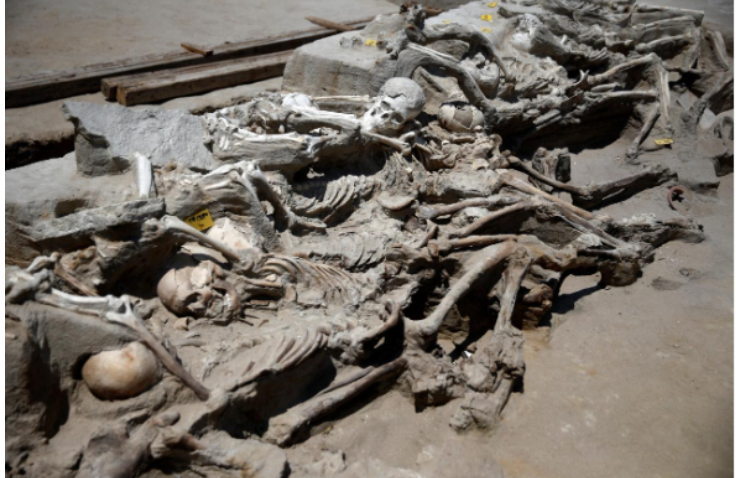
According to Dr. Stella Chryssoulaki, the head of excavations, the executed individuals were buried with respect despite all being killed in the same manner. It appears that most of them were young and in good health before their execution with their hands tied together by handcuffs. The cause of death is still unknown but experts plan to conduct DNA testing and research by anthropologists to uncover the truth. The violent nature of the event is apparent from the fact that most of the individuals had their arms bound above their heads with their wrists tied together.
But the orderly way they have been buried suggests these were more than slaves or common criminals.
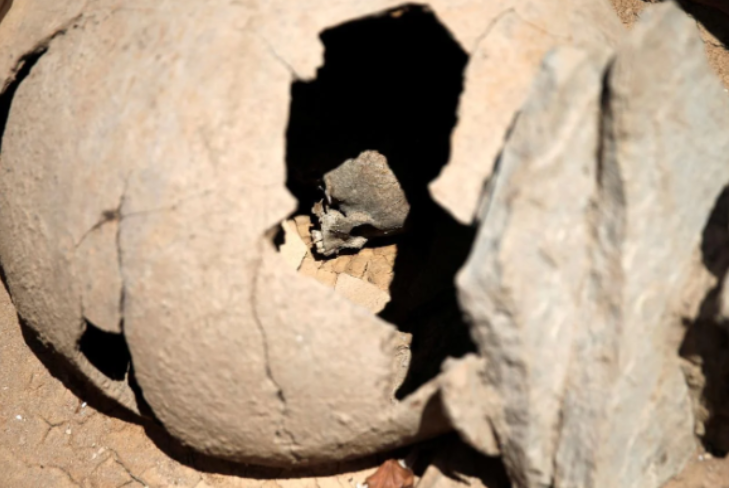
The cemetery dates from between the 8th and 5th century BC.
“It is a period of great unrest for Athenian society, a period where aristocrats, nobles, are battling with each other for power,” said Chryssoulaki.
Shackled skeletal remains are piled on top of each other at the ancient Falyron Delta cemetery in Athens. Credit: Reuters
The remains belonged to men who had been brutally executed. Credit: Reuters One of the strongest theories is that they were supporters of Cylon, an Athenian noble and Olympic champion who staged an attempted coup in Athens in 632 BC with the help of his father-in-law, the tyrant of Megara.

